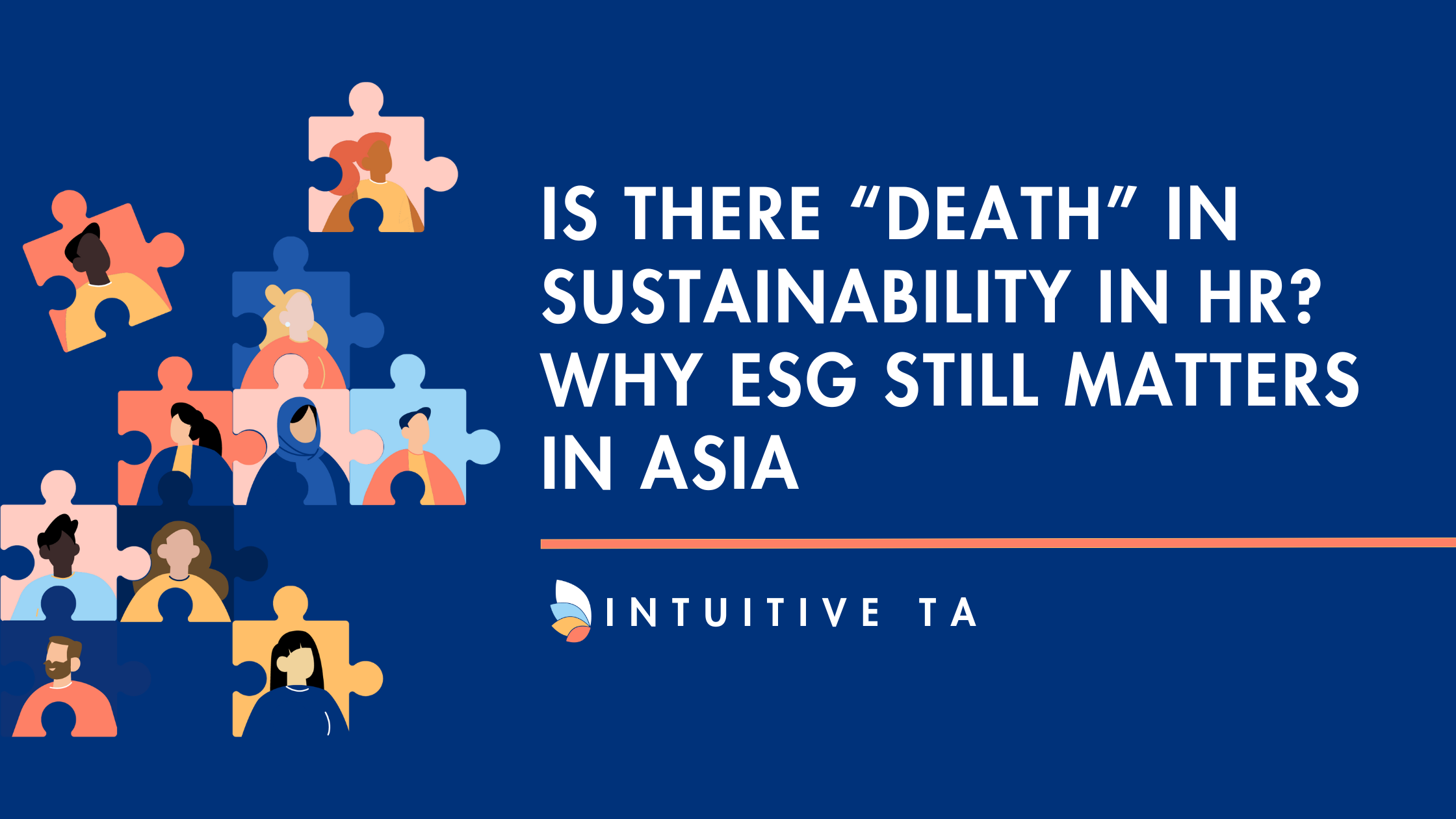In the U.S., conversations about ESG (Environmental, Social, Governance) have turned political. Some headlines even suggest ESG is “dead” or irrelevant in today’s climate. But here in Asia, we see a very different story playing out in the workplace.
From an HR lens, we don’t think sustainability is going away… it’s simply evolving.
1. HR Sustainability is About People First
At its core, sustainability in HR isn’t about policies, checklists, or frameworks. It’s about people. When companies invest in employee well-being whether through good benefits, flexible work, or simply showing care, employees feel valued.
We’ve noticed that when people feel valued, they give back in return. Happier employees often mean better productivity, stronger loyalty, and lower attrition. It’s not “soft” HR. It’s just good business sense.
2. Care is the New Currency for Employer Branding
Across Asia, talent is more mobile than ever. Salaries are still important, of course, but for many employees (especially Gen Z) the culture of care inside a company is just as critical. They want to work for employers who do good and make them feel good.
From what we see in the market, companies that lead with care aren’t just keeping their employees but they’re also boosting their external brand. Partners, clients, and potential hires notice when a business prioritises people, not just profits.
3. ESG Programs as a Practical Anchor
Yes, ESG is often politicised in the West. But in Asia, we’ve observed it being treated less as an ideology and more as a practical anchor. Companies that stick with their ESG programs, especially those linked to HR, tend to be the ones that adapt faster, engage their workforce better, and maintain trust with stakeholders.
It’s less about whether ESG is trendy, and more about the simple truth: companies that look after their people and communities usually find themselves more resilient in uncertain times.
4. The Win-Win of a Caring Culture
Creating a culture of care isn’t just altruistic. It’s strategic. Employees who feel supported are more motivated, more engaged, and more willing to stay through challenges.
And for younger talent, especially Gen Z, this isn’t optional. They’re drawn to workplaces where doing good is part of the DNA, not a side project. If a company can genuinely weave care and responsibility into its culture, it often becomes a talent magnet.
5. So, Is Sustainability “Dead”?
Not from where we’re standing. In Asia, it feels more alive than ever… just reframed. For HR leaders, the challenge isn’t whether to keep ESG and people-focused initiatives, but how to make them meaningful, practical, and people-first.
The bottom line here is when employees feel good, businesses do good. And that’s a version of sustainability no company can afford to ditch.


